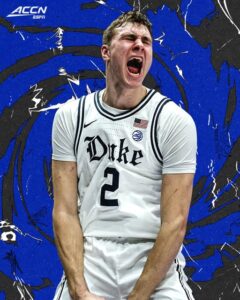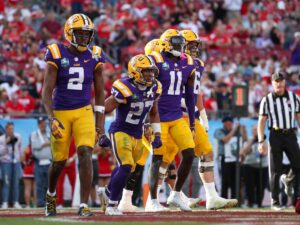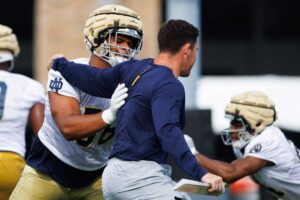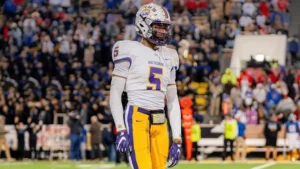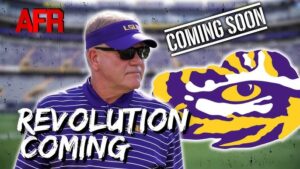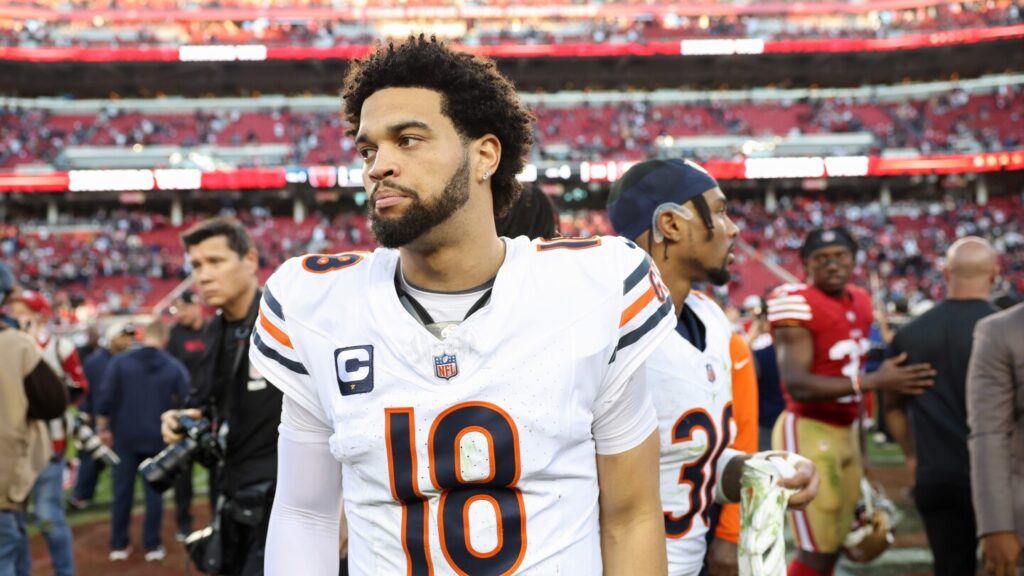
Bears player Caleb Williams opposes making friends with NFL teammates: “A desire for a competitive edge”
Caleb Williams, a player for the Chicago Bears, has recently made headlines by openly discussing his stance on team dynamics, particularly regarding friendships among teammates. His view that fostering friendships within the locker room might dilute the competitive edge that drives players to succeed raises intriguing questions about the balance between team chemistry and individual motivation in professional sports.
The notion of a professional athlete prioritizing competition over camaraderie is not new, but Williams’ bold stance provides an opportunity to delve deeper into the psychology of elite athletes, team dynamics, and the culture of competition in the NFL. At the heart of Williams’ philosophy is a desire to maintain a sharp focus on his individual performance, asserting that being too emotionally invested in friendships could blur the lines between personal ambition and team goals.
The Competitive Edge: A Crucial Asset
In the hyper-competitive environment of the NFL, where every player is fighting for a spot, an edge, or a championship ring, maintaining a competitive mindset is crucial. Caleb Williams argues that an athlete’s main focus should always be on improving themselves—mentally, physically, and emotionally—in order to gain an advantage over their competition.
The NFL, as one of the most physically demanding and mentally taxing leagues in the world, places enormous pressure on players. As a result, any aspect of a player’s life that can contribute to bettering their performance is viewed as invaluable. Williams sees relationships with teammates as potential distractions that can take away from the singular goal of maximizing one’s individual potential.
From his perspective, this mindset ensures that players are constantly pushing themselves to improve. After all, NFL careers are notoriously short, and players must squeeze every bit of skill, talent, and athleticism they can out of themselves. That hunger for improvement is often what separates good players from great ones.
A competitive edge, according to Williams, is not simply about physical prowess but also about mental fortitude. NFL players spend hours analyzing film, reviewing playbooks, and refining their techniques. This obsession with personal growth may leave little room for emotional connections that could cloud their focus. If a player becomes too attached to their teammates, they risk letting emotions, rather than their competitive drive, guide their decisions on and off the field.
The Role of Teamwork in the NFL
The NFL, despite its individual star power, is a team sport. The best teams in history have often been those that functioned as a cohesive unit, where players trusted each other both on and off the field. While Williams may argue against forming deep friendships, many players and coaches believe that the foundation of any successful team lies in mutual respect, trust, and camaraderie.
Football is often compared to a family. Coaches frequently stress the importance of building relationships to foster communication and chemistry on the field. The best teams often have players who support one another through thick and thin, not just in the game itself but also during off-field struggles. These relationships can serve as the emotional support players need to get through the tough times—whether it’s a tough practice, a game-losing performance, or a personal setback.
From this perspective, Caleb Williams’ views could be seen as somewhat out of touch with the conventional wisdom of NFL team dynamics. Team chemistry, the theory goes, helps players feel more accountable to each other, leading to better cooperation, coordination, and trust on the field. Without these emotional ties, it could be difficult to build that kind of seamless team coordination that makes great plays, winning seasons, and championship runs possible.
While Williams may not oppose working together as a unit or having respect for teammates, he seems to draw a distinct line between professional respect and personal friendship. The challenge lies in striking the right balance: How can players maintain a competitive edge without sacrificing the interpersonal connections that often define a team’s spirit?
The Psychology of Elite Athletes
Athletes, particularly those at the highest levels of their sport, often share certain psychological traits that contribute to their success. One such trait is an unwavering focus on self-improvement. Whether it’s an obsessive drive to be the best or a laser-like focus on their personal goals, the best athletes often distance themselves from outside distractions—friendships included.
Williams’ stance aligns with the mentality of many high-performing athletes who are singularly focused on achieving their goals. Professional athletes, by their very nature, are driven by a desire to constantly prove themselves, to be the best version of themselves every day. This obsessive drive is not always conducive to the kinds of friendships that form in other workplaces.
This mindset is also rooted in a desire for control. By keeping personal relationships with teammates at arm’s length, Williams can maintain a sense of emotional independence. He is less likely to be swayed by the ups and downs that come with interpersonal conflicts or the complexities of team politics. His relationship with his teammates is one of respect, but it is not weighed down by the emotional expectations that often come with friendship.
The pressures of the NFL, coupled with the idea that every game could be a player’s last, means that athletes often see their careers as fleeting. The longer they spend focused on improving themselves, the better their chances of a long, successful career. This drive for excellence can sometimes come at the expense of personal relationships, as the fear of failure looms larger than the need for social bonding.
The Nature of NFL Teams: “All Business”
For some players, the NFL is just as much about business as it is about sport. In this light, Williams’ view makes perfect sense. NFL teams are multi-million-dollar enterprises where success and failure are measured in dollars, endorsements, and championships. In this high-stakes world, players must view their time on the field and in the locker room as part of their professional commitment.
In such an environment, friendships can be seen as a luxury. It’s not that players are incapable of forming deep bonds; rather, it’s that the culture of the NFL often demands a level of emotional detachment. Every player knows that at any given time, they could be traded, released, or injured, and that loyalty to a team or individual could be fleeting. A player’s value is often tied to their on-field performance, not their off-field relationships.
This transactional approach to relationships, while not universally adopted, can certainly inform a player’s decision to limit personal connections. If Williams is focused entirely on maximizing his performance, any emotional distraction could jeopardize his drive to remain one of the top players in the league. This can be especially important for younger players who are still establishing themselves in the league and trying to secure their futures.
Challenging the Status Quo: Is There a Right Answer?
While Caleb Williams’ perspective on friendships within the NFL may be unconventional, it does provide a unique lens through which to examine the complexities of team dynamics. Is it possible to maintain the competitive drive necessary for success without sacrificing the human connection that drives team morale? Can a team be truly successful if its players operate as isolated individuals rather than as a unified group?
The answer likely lies somewhere in between. While individual performance and drive are critical to success in the NFL, many would argue that a successful team is built on mutual respect, trust, and shared experience. These elements foster a collaborative environment where players not only challenge each other to be better but also have each other’s backs when it counts most.
However, for players like Caleb Williams, the desire for individual excellence can outweigh the need for social bonding. In a world where athletes are constantly striving for the top, and where every edge counts, choosing to focus on one’s self and the drive for personal improvement could very well be the key to sustained success.
Caleb Williams’ decision to prioritize competition over friendship with his NFL teammates is a perspective that challenges traditional notions of teamwork and chemistry in professional sports. While his approach may seem unconventional, it taps into a mindset that has shaped the careers of many elite athletes across various disciplines.
Ultimately, the decision of whether to embrace friendships with teammates or maintain a distance for the sake of competition is deeply personal. While some players may find strength in their relationships with others, others, like Williams, may feel that the competitive edge gained by focusing solely on their own development is the most crucial factor in their success.
As professional sports continue to evolve, debates over the balance between individual ambition and team dynamics will persist. Caleb Williams’ stance serves as a reminder that there is no one-size-fits-all approach to success in the NFL—or in any other competitive arena.
